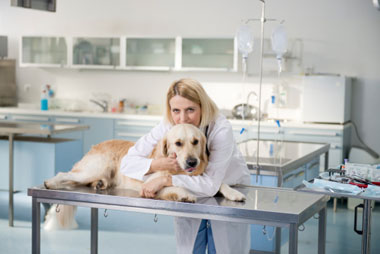Why Smart Veterinarians are Recycling the Platinum from their Testing Supplies
On January 21st, a post on this blog described the value that’s hidden in used and surplus Electrophysiology (EP) catheters that are left over from medical test procedures. As we noted, “Electrophysiology (EP) studies are becoming far more common – tests that monitor the electrical activity within a patient’s heart to determine the cause of arrhythmia and other problems.”
We didn’t mention that veterinarians are now using larger quantities of platinum EP catheters in their practices too, and that those vets can recycle them for more money than they might expect. How much money? As we go to press with this post, platinum is trading for $1,435.00. That figure should serve as a reminder of how foolish it can be to discard EP catheters instead of recycling them with one of America's best platinum refiners.
The Boom in Veterinary Testing
If you’re a vet, you already know that many pet owners today want to give their pets the most advanced treatments available. Dogs and cats are being treated for diabetes, blood disorders, cardiac issues, joint diseases, epilepsy, and more illnesses. It seems that people want their pets to live longer and enjoy a better quality of life while they do. And when a pet is entering its final days, some pet owners are even sending their animals to veterinary hospice centers.
As a result, cardiac and other tests that were once given to human patients only are now being administered to animals in veterinary offices.
If you’re discarding your used testing supplies, you could be discarding money too. If you call Specialty Metals Smelters and Refiners at 800-426-2344, our consultants will be happy to help you create a plan to turn your used EP catheters into dollars.
Related Posts
New Medical Technologies Spur a Boom in Platinum Use – and Platinum Recycling
Demand for Precious Metals Increases with Widespread Healthcare Changes
Snip the Tips to Make Surprising Money from Recyclables
Recycling and Refining: The Profitable Way to Dispose of Used Laboratory Equipment

